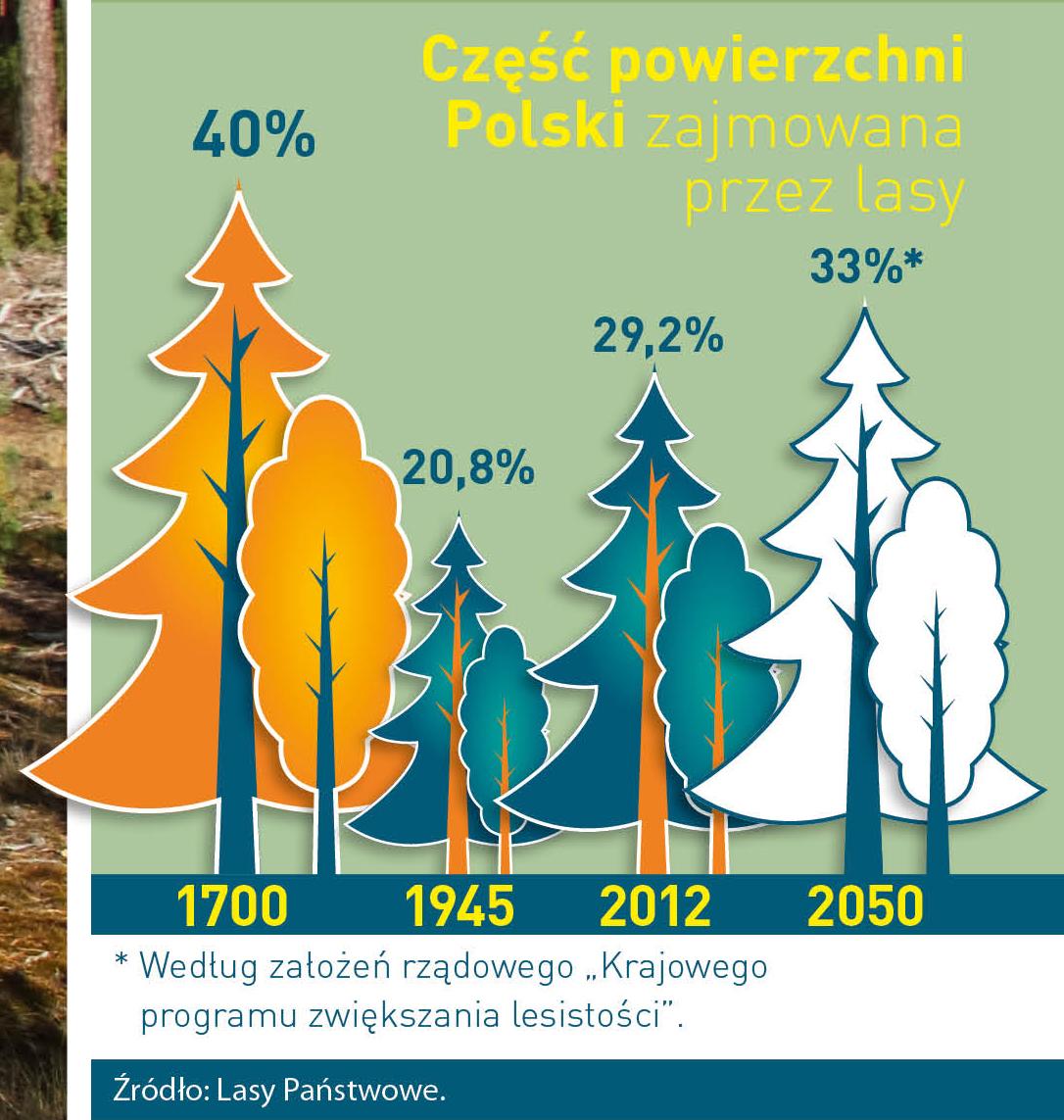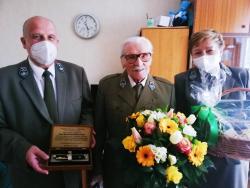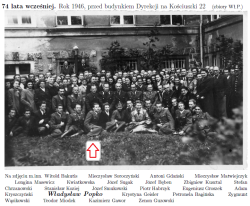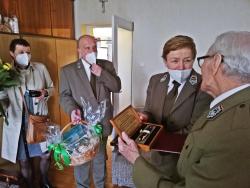 Asset Publisher
Asset Publisher
Polish forests
Poland is in the European lead, while concerning the area of all forests. They cover about 29,2 % of the country territory, and grow within the area of 9,1 million hectares. The overwhelming majority of the forests is state owned, of which almost 7,6 million hectares are managed by the State Forests National Forest Holding..
The number of Polish forest is still growing. The forestation rate of the country has increased from 21 % in 1945 to 29,2 % at the moment. Between 1995 and 2008, the forest area increased by 310 thousand ha. The basis for afforestation works is the "National Programme for Increasing the Forest Cover" (KPZL), assuming an increase of the forestation rate up to 30 % by 2020 and up to 33 % by 2050. Polish forests abound in flora, fauna and fungi. 65 % of the total number of animal species live there.
The forests grow in our country on poor soils, mainly because of the development of the agriculture in previous years. It influences the distribution of the types of the forest sites in Poland. Over 55 % of the forest areas is covered with coniferous forests. In other areas, there are forest sites, mainly the mixed ones. Their small part constitute alder and riparian forests – not more than 3 %.
In the years 1945 – 2011 the area of natural deciduous tree stands within the area of the State Forests National Forest Holding increased from 13 to 28,2 %.
Within the lowlands and uplands the most often occurring tee species is pine. It covers 64,3 % of the forest area of the State Forests National Forest Holding and 57,7 % of private and commune forests. In the mountains the predominant species is European spruce ( in the west) and European spruce with beech (in the east). Domination of pine is the result of carrying on sustainable forest management in the past. Once, the monocultures (crops or cultivations of one species) were the answer to the great demand of industry for wood. Such forests appeared to be quite fragile to climatic factors. They also were often the prey of pests' expansion.
In Polish forests, the share of other tree species, especially deciduous trees have been systematically increasing. The foresters have stepped aside from monocultures – that is why, they try to fit specific species of the forest stand to the natural stand, that would be proper for the given area. Thanks to that, in the years 1945 – 2011, the area of the deciduous tree stands within the lands of the State Forests National Forest Holding increased from 13 to 28,2 %. There occur more and more frequently the following tree species: oaks, ashes, maples, sycamore maples, elms, but also birches, beeches, alders, poplars, hornbeams, aspens, tilias and willows.
Our forests are the most often represented by the forest stands aged 40 to 80 years. The average age of the forest equals 60 years. More and more trees are of big size at the age over 80 years. Since the end of the Second World War, the forests' area has increased up to almost 1,85 million hectares.
Raport o stanie lasów w Polsce 2012
 Asset Publisher
Asset Publisher
 Asset Publisher
Asset Publisher
Z WIZYTĄ U 100-LETNIEGO LEŚNIKA
Z WIZYTĄ U 100-LETNIEGO LEŚNIKA
Z upływem czasu pięknieje dar mądrości i zwyczajna dobroć - Cz. Miłosz
Mimo trudnego czasu epidemii i zmiany organizacji życia, i pracy RDLP w Szczecinku, leśnicy nie zapominają o seniorach. Razem z Panią Dyrektor Anną Paszkiewicz, przy zachowaniu wszelkich środków ostrożności, odwiedziliśmy 100 letniego leśnika, byłego pracownika naszej dyrekcji. Władysław Popko* ponad 40 lat przepracował w lasach a dziś jest dla nas prawdziwą inspiracją i skarbnicą wiedzy.
Mimo sędziwego wieku Władysław Popko wciąż jest wierny zawołaniu „służba nie drużba”. Do naszej wizyty przygotowywał się przez cały poranek i powitał nas w progu w pełnym umundurowaniu. Były kwiaty dla dostojnego Jubilata, dyplom uznania i prezent w postaci pióra z wygrawerowanymi życzeniami:
Z wyrazami wielkiej dumy oraz szacunku pragniemy złożyć najszczersze życzenia z okazji setnej rocznicy urodzin. Ten dostojny Jubileusz to dla nas wyjątkowa okazja ku temu, by złożyć Panu serdeczne gratulacje oraz życzenia dobrego zdrowia, bowiem jest ono najcenniejsze. Życzymy Panu kolejnych, spokojnych, pogodnych i szczęśliwych lat w atmosferze życzliwości i wdzięczności ludzkiej.
Senior był wyraźnie poruszony. A że pamięć ma doskonałą, wydobył z niej kilka anegdot z czasów pracy w szczecineckiej dyrekcji, czym wzbudził zdumienie i uśmiech u uczestników wizyty.
Postanowiliśmy poprosić dostojnego Jubilata o kilka słów przesłania dla leśników, którzy kontynuują jego pracę oraz do tych, którzy dopiero rozpoczynają swoją drogę zawodową w leśnictwie.
* * *
MS: Co było najważniejszym zadanie dla Pana, kiedy pracował Pan w RDLP
w Szczecinku?
WP: Pierwszą moją inicjatywą to było przekonanie leśników do finansów. Chciałem to zrobić poprzez szkolenia. Dobry gospodarz powinien umieć dobrze liczyć. Prowadziłem te szkolenia. Nadleśniczowie, podleśniczowie a także sztab. Wiele osób jeszcze wtedy myślało, że leśniczy to strzelba i piórko, do lasu
i polować. A Lasy Państwowe to przecież olbrzymie przedsiębiorstwo i olbrzymia praca finansowa. Podatki trzeba odprowadzać do budżetu, dlatego praca księgowości jest bardzo odpowiedzialna. Podatki z LP wspierały inne gałęzie gospodarki.
MS: Co chciałby Pan ważnego powiedzieć dzisiejszym leśnikom?
WP: Potrzebna jest przede wszystkim stabilizacja w zatrudnieniu. Las wymaga pracy ciągłem przez kilkadziesiąt lat. Wyniki pracy leśników są widoczne po kilkudziesięciu latach. Las rośnie długo i dlatego ważne jest, żeby jeden leśnik kontynuował pracę drugiego. Stabilizacja i ciągłość pracy.
MS: Czym była dla Pana praca w LP?
WP: Początkowo, jak to się mówi, szukałem pracy dla chleba, ale później bardzo polubiłem swoją pracę. Postawiłem na to, żeby dać od siebie jak najwięcej tego, co sam potrafię. Na polecenie Ministerstwa Finansów prowadziłem też kontrole
w jednostkach. Moja praca była dla mnie moim zamiłowaniem.
MS: Czego leśnicy dzisiaj mogą Panu życzyć?
WP: To czego pragnąłem, to mam. Życzyłbym sobie szacunku, bo to jest coś, co daje satysfakcję. Szacunku od ludzi i zdrowia.
MS: Tego Panu z całego serca życzymy.
Na koniec Pan Władysław otrzymał zaproszenie od Pani Dyrektor na spotkanie seniorów do siedziby dyrekcji, w najbliższym czasie, kiedy warunki sanitarne pozwolą. Każdego roku takie spotkanie organizowane jest przy świętach Bożego Narodzenia. Pamiętamy o naszych seniorach w każdym czasie, wiedząc jakie to dla nich ważne. Dla nas jest to zawsze ciekawa lekcje historii i człowieczeństwa.
*Władysław Popko pracował w Lasach Państwowych od 1946 do 1988 roku najpierw na stanowisku zastępcy głównego księgowego a póżniej także na stanowisku głównego księgowego.


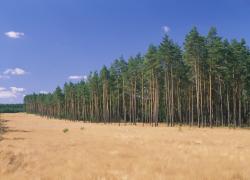 fot. Paweł Fabijański
fot. Paweł Fabijański
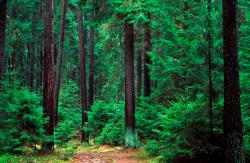 fot. Paweł Fabijański
fot. Paweł Fabijański
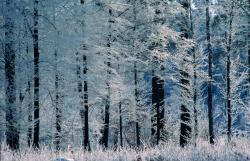 fot. Paweł Fabijański
fot. Paweł Fabijański
